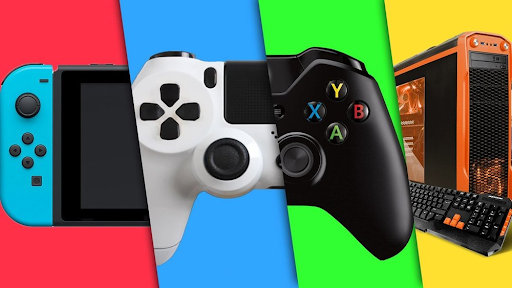Cross-platform development used to entail making games for both PCs and consoles. Mobile devices have now been included to the list. They are the most active and fastest-growing section of the gaming business, and they are being pegged with high aspirations.
Of course, platform exclusives and PC-only titles will continue to exist. However, cross-platform programming is the way of the future. Around 2.6 billion mobile users outnumber 1.5 billion PC users and 730 million console users. It would be insane to pass up this chance. As a result, we’re talking about multi-platform game creation today so that everyone is aware. If you want to order cross-platform development, please contact Whimsygames – outsourcing game development.
What is the definition of cross-platform game development?
It would be foolish to go into a subject without first providing a fundamental definition, since this may cause someone to question their own understanding. In the gaming business, cross-platform game development refers to the construction of a game that can run on many platforms at the same time.
What is cross-platform development and how does it work? Unlike native programming, which employs official tools given by the system’s creators, cross-platform development necessitates the use of alternative software to help adapt one code for many platforms.
As a result, all devs share the same codebase. Various software development kits, scripting languages, software libraries, and game engines are utilized to generate platform-dependent sections of the game.
Cross-platform development is a broad and demanding process. It necessitates a higher level of attention to detail. When launching a game on many platforms, it’s easy to overlook details. Many long-awaited game publishers’ reputations have suffered considerably as a result of poor testing and the failure to catch a slew of bugs and flaws in the console version in the final edition. Simultaneously, the PC version proved to be pretty satisfactory.
The correct game engine may be the key to successful multi-platform game development. There are well-known engines that everyone is familiar with, as well as engines that are less well-known yet can perform the job just as well. Our goal is to look at the finest cross-platform game engines and give each one a fair evaluation.
What Types of Challenges Can You Expect During Cross-Development?
We all know that software development isn’t easy, and many of your game developers are likely well aware of the major challenges they face in their field of work. But what about cross-platform development’s unique challenges? Let’s have a look at some examples:
It takes a long time to create numerous app versions.
As previously said, a game engine may help you save a significant amount of time during development by providing a single stream for the majority of the game logic and functionality. However, you’ll still have to devote a significant amount of work to fine-tuning the various versions to their individual programming languages and platforms.
The development for consoles is particularly challenging
Prepare for an intriguing experience if you pick a gaming console (Xbox, PlayStation, Nintendo) as one of your app’s deployment platforms. To begin, the console manufacturers will evaluate your idea to see whether it is a suitable match for their platform, and only then will they provide you with the tools you need to make it compatible – their software development kit. Because of the sensitivity of these tools, the console manufacturer will almost certainly need you to sign an NDA (non-disclosure agreement).
Getting around technological limitations
When it comes to optimizing graphics and performance for multiple platforms, expect a lot of tweaking. For various devices and hardware, you must customize parameters such as aspect ratio, screen size and resolution, video and audio codecs, and performance. As you may think, this will need a significant amount of testing.
Organizing controls and input
You’ll have to spend a lot of effort setting up input/controls in addition to adjusting how your game works on multiple devices. After example, someone playing on a smartphone will need a completely different method of gaming control than someone using a mouse and keyboard. If you decide to create a virtual reality experience, you’ll need to figure out how the player’s head and hand motions might influence gameplay.
Observing platform guidelines
As you may be aware, Apple has stringent standards for applications in its store, and we’ve previously discussed the challenges of console certification. The fact is that any platform you choose to launch on, you’ll almost certainly have to meet stringent app certification criteria, which may need significant modifications to your app. Future patches and upgrades to your game will be subject to the same limitations.
Looking for the best cross-platform mobile developers? Here’s your answer: https://whimsygames.co/services/mobile-development/.
https://text.ru/antiplagiat/619e2e282308a



















